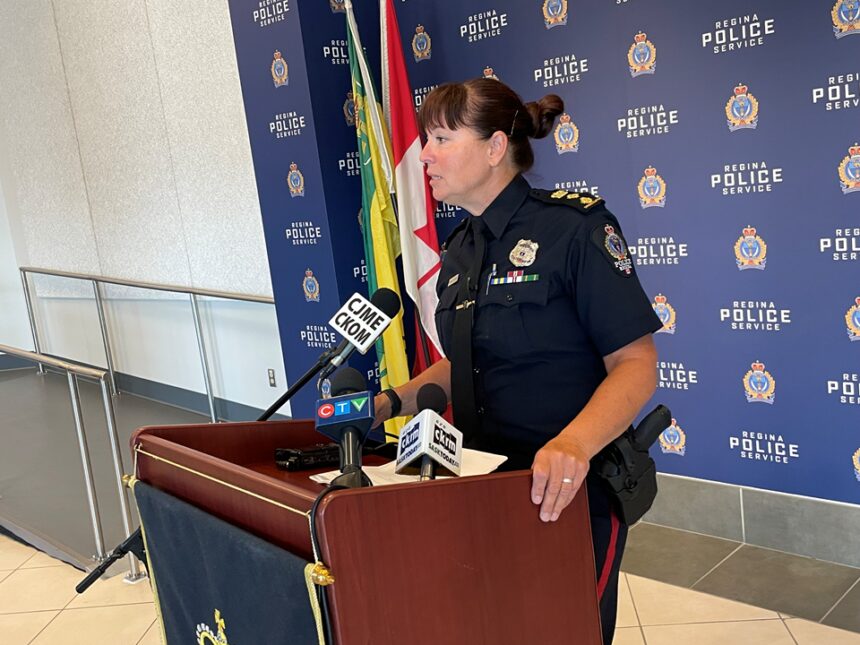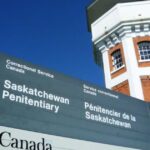I still remember the day I met Officer Sarah Thompson. It was a crisp September morning, the kind where Regina’s big prairie sky seems impossibly blue. We sat in the break room at the Regina Police Service headquarters, her hands wrapped around a coffee mug that read “World’s Okayest Cop” – a gift from her partner that made her smile despite the heaviness in her eyes.
“Twenty years on the job changes you,” she told me, her voice steady but tired. “You can’t unsee the things we see. And we’re trained to compartmentalize, to keep moving. But eventually, those compartments get full.”
Thompson is one of 100 Regina police officers participating in a groundbreaking pilot program launched this month in partnership with the University of Regina. The initiative introduces a digital mental health check-in system designed specifically for law enforcement personnel who regularly face traumatic situations.
The program, developed by Dr. Nicholas Jones from the University of Regina’s Department of Psychology, uses a secure app that prompts officers to complete brief mental wellness assessments at regular intervals. What makes this approach innovative is how it combines technology with human connection – officers showing concerning patterns are automatically connected with mental health professionals who specialize in first responder trauma.
“Police work creates a perfect storm for mental health challenges,” explains Dr. Jones, who has studied first responder wellness for over a decade. “Officers experience acute trauma, chronic stress, and often feel they can’t show vulnerability without compromising their professional standing.”
The statistics back up his concern. According to a 2022 study published in the Canadian Journal of Psychiatry, police officers experience post-traumatic stress disorder at rates nearly four times higher than the general population. A separate report from the Canadian Institute for Public Safety Research and Treatment found that 44.5% of municipal police officers screened positive for at least one mental health disorder.
For Regina Police Chief Evan Bray, addressing these realities became personal after losing a colleague to suicide three years ago.
“We lost one of our best,” Bray told me when we discussed the program in his office. “Someone who never showed signs of struggling, who always seemed to handle the job with grace. It shook our entire department and forced us to ask hard questions about the culture we’ve created.”
Bray, who has served as Chief since 2016, admits that changing police culture around mental health requires more than just offering resources – it means transforming deeply ingrained attitudes about strength and resilience.
“When I started in policing 25 years ago, talking about how a call affected you emotionally wasn’t something you did,” he says. “The unspoken rule was to tough it out. We’re learning that approach doesn’t just fail our officers – it compromises public safety.”
The Regina program draws inspiration from successful models in other Canadian police services, including Calgary’s Road to Mental Readiness program, but adds technological innovation through its partnership with the university. The system uses an algorithm developed by U of R researchers that identifies patterns in responses that might indicate developing mental health concerns, sometimes before officers themselves recognize the symptoms.
For Officer David Kowalski, a 12-year veteran and early participant in the pilot, the system already provided a wake-up call.
“I had three difficult calls in one week – a fatal car accident involving children, a domestic homicide, and a suicide intervention that didn’t end well,” Kowalski shared. “The app flagged changes in my responses, and I got a call from the program coordinator suggesting a debrief. Initially I brushed it off, but when I finally went, I realized how much I needed to process what I’d experienced.”
The program’s funding comes from a $1.2 million grant from Public Safety Canada’s Community Safety and Policing fund, covering both the technology development and the clinical support staff dedicated to officer wellness.
Dr. Rose McPherson, clinical psychologist and program consultant, emphasizes that the initiative addresses a critical gap in police mental health support.
“Traditional approaches often rely on officers to self-identify when they’re struggling, but we know stigma and professional concerns create barriers,” McPherson explains. “This system provides multiple entry points for support and normalizes mental health check-ins as part of routine professional practice.”
The program also recognizes the unique stressors facing Indigenous officers and those working in Indigenous communities. The Regina Police Service has partnered with the Indigenous Wellness Team at All Nations Hope Network to ensure culturally appropriate mental health support is available.
Stephanie Blind, an Indigenous wellness coordinator with the network, brings traditional healing practices into the program’s approach.
“Historical trauma in Indigenous communities creates complex layers for officers, especially Indigenous officers who may have their own lived experiences of intergenerational trauma,” Blind explains. “Our healing circles offer space for officers to process these experiences in ways that honor traditional knowledge.”
As the pilot moves forward, researchers will track various wellness metrics, including sick leave usage, workplace satisfaction, and clinical assessments of mental health symptoms. If successful, the program could be expanded to other police services across Saskatchewan and potentially nationwide.
For Officer Thompson, the program represents a long-overdue recognition of policing’s human toll.
“When I started this job, I thought being strong meant never showing weakness,” she tells me as we finish our conversation. “Now I understand that real strength is acknowledging when you’re not okay and reaching for help before you break.”
As she heads back to her shift, I’m struck by how this initiative represents a profound cultural shift. In a profession where vulnerability has traditionally been viewed as a liability, Regina’s police service is redefining strength – not as an absence of struggle, but as the wisdom to recognize when the weight becomes too heavy to carry alone.






